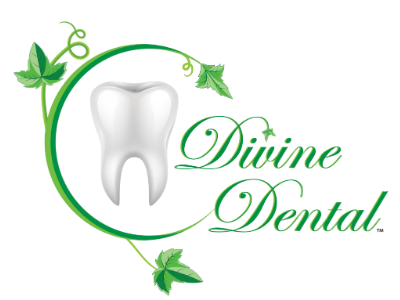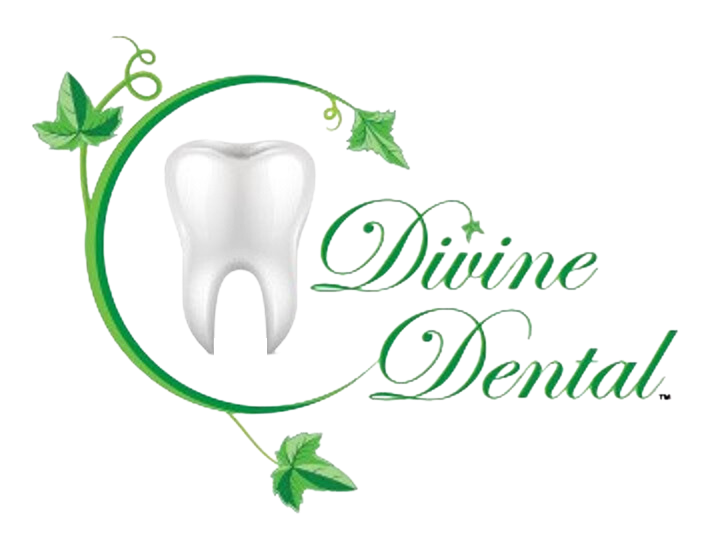Toothache Triggers: What's Really Causing Your Dental Discomfort?
Toothaches can be incredibly agonizing, making it difficult to concentrate on anything other than the pain. Understanding the causes of toothaches is crucial for effectively addressing dental discomfort and finding the appropriate treatment and prevention strategies. From tooth decay and infected teeth to gum disease and tooth fractures, there are numerous triggers that can lead to dental pain.
By identifying the underlying cause of toothache, individuals can access the right treatments and take preventive measures to maintain oral health. Whether it's something as common as sensitivity to cold foods or as serious as a tooth abscess, pinpointing the trigger allows for targeted interventions, such as fluoride toothpaste, mouth rinses, or dental treatments.
Moreover, understanding the causes of toothaches can help individuals recognize when to seek professional dental care. By learning about the various triggers and adopting proper oral hygiene habits, including regular cleanings and the use of a mouth guard for teeth grinding, it is possible to prevent toothaches and maintain optimal oral health.

Common Causes of Toothaches
Toothaches can be an extremely uncomfortable experience, causing sharp pain and discomfort that can be difficult to ignore. There are several common causes of toothaches, including tooth decay, gum disease, dental fractures, and tooth sensitivity. It's important to seek prompt dental care to address toothaches and prevent further complications. Regular cleanings, good oral hygiene practices, and dental treatments can help maintain oral health and alleviate toothaches.
Tooth Decay and Cavities
Tooth decay and cavities are common dental issues that occur when the hard outer layer of the tooth, known as tooth enamel, gets damaged. Poor oral hygiene habits, consumption of sugary foods and drinks, and bacterial infections are major contributors to the formation of cavities.
When we neglect proper oral care practices, like brushing and flossing regularly, plaque accumulates on our teeth. Plaque is a sticky film made up of bacteria and food particles. The bacteria in plaque feed on sugars from the foods we consume and produce acids. Over time, these acids erode the tooth enamel, leading to tooth decay and the formation of cavities.
Common symptoms of tooth decay include tooth sensitivity, especially when consuming hot, cold, or sweet foods and drinks. Toothache pain may also be present in the affected tooth. If left untreated, cavities can deepen, causing tooth sensitivity to worsen and leading to severe pain and tooth loss.
Preventing tooth decay and cavities is essential for maintaining good oral health. Regular dental check-ups allow dentists to identify and treat dental issues at an early stage. Practicing proper oral care, such as brushing twice a day with fluoride toothpaste and flossing daily, helps remove plaque and keep the teeth clean. Limiting the consumption of sugary foods and drinks also reduces the risk of tooth decay.
Gum Disease or Gingivitis
Gum disease, also known as gingivitis, is a common oral health condition caused by the inflammation of the gum tissue surrounding the teeth. It is primarily caused by the buildup of plaque, a sticky film containing bacteria and food particles, on the teeth and along the gumline. Poor oral hygiene practices, such as inadequate brushing and flossing, can lead to the accumulation of plaque and the onset of gum disease.
The symptoms of gum disease include red and swollen gums, tenderness or discomfort, bleeding during brushing or flossing, and persistent bad breath. If left untreated, gum disease can progress to a more severe form called periodontitis. This can result in the destruction of the gums and supporting structures of the teeth, leading to tooth loss.
Preventing gum disease involves maintaining good oral hygiene habits. This includes brushing the teeth at least twice a day with fluoride toothpaste, flossing daily to remove plaque between the teeth, and using antibacterial mouthwashes to reduce bacterial growth. Regular dental cleanings are also essential in removing hardened plaque, known as tartar or calculus, that cannot be removed by regular brushing and flossing alone.
In cases of gum disease, treatments may include professional deep cleaning, called scaling and root planing, to remove plaque and tartar from below the gumline. Antibiotics or antimicrobial mouth rinses may also be prescribed to control bacterial growth. In advanced cases, gum surgery may be necessary to repair the damaged gum tissues and restore oral health.
Infected Teeth or Abscesses
Infected teeth or abscesses occur when bacteria enter the tooth through a cavity, crack, or injury, leading to an accumulation of pus in the tooth or surrounding gums. The symptoms of an infected tooth or abscess can include severe toothache, sensitivity to hot or cold foods, persistent bad taste in the mouth, swollen gums, facial swelling, and difficulty in chewing.
If left untreated, a tooth abscess can have serious consequences. The infection can spread to other parts of the body, leading to complications such as facial cellulitis, sinusitis, or even a brain abscess. In rare cases, an untreated dental infection can even result in a life-threatening condition.
Seeking prompt dental treatment for an infected tooth or abscess is crucial. Treatment usually involves draining the pus by either performing a root canal procedure or extracting the infected tooth. Antibiotics may also be prescribed to eliminate the infection and prevent further complications.
Ignoring an infected tooth or abscess can worsen the pain and discomfort while increasing the risk of systemic infection. It's important to remember that dental infections do not resolve on their own and require professional intervention. If you suspect an infected tooth or abscess, schedule an appointment with your dentist immediately to receive appropriate treatment and prevent potential complications.
Jaw Problems and TMJ Disorders
Jaw problems and TMJ disorders can be a source of significant discomfort and can often result in toothaches and dental pain. The temporomandibular joint (TMJ) connects the jawbone to the skull and allows for the movement required for chewing and speaking. When this joint becomes damaged or experiences dysfunction, it can lead to TMJ disorders.
There are several causes of jaw problems and TMJ disorders, including teeth grinding, jaw clenching, arthritis, jaw injury, misaligned teeth, or stress. The common symptoms associated with these conditions include jaw pain, facial pain, headaches, earaches, difficulty or pain while chewing, popping or clicking sounds when opening or closing the mouth, and a locked jaw.
Fortunately, there are various treatment options available for managing jaw problems and TMJ disorders. These can include self-care measures such as applying ice packs, practicing relaxation techniques, and avoiding hard or chewy foods. Dentists may also recommend wearing a mouth guard or splint to alleviate pressure on the joint and reduce teeth grinding or clenching. In some cases, physical therapy, medication, or dental procedures may be necessary.
To manage and relieve symptoms of TMJ pain, it is essential to avoid triggers such as excessive chewing, biting nails, and clenching the jaw. Hot or cold compresses can help alleviate discomfort, and over-the-counter pain medications may provide temporary relief. Practicing stress-reducing techniques like meditation or yoga can also be beneficial.
If you experience ongoing jaw problems or TMJ disorders, it is crucial to seek professional dental care. A dentist or oral surgeon will be able to assess your condition and recommend appropriate treatment options. By addressing TMJ disorders, toothaches and dental discomfort can often be alleviated.
Injury to the Mouth or Teeth
Injuries to the mouth or teeth can occur due to various reasons, such as accidents, falls, or sports-related incidents. These injuries can result in a range of dental problems that require immediate attention. Accidents or falls can cause tooth fractures, chips, or complete dislodgment of teeth.
Tooth fractures can be minor, involving only the enamel, or more severe, reaching the dentin or pulp layer. In some cases, the tooth may break off completely. Chips in the teeth can leave sharp edges or expose sensitive inner layers, leading to pain and sensitivity. When a tooth is fully knocked out, immediate dental care is crucial to increase the chances of successful re-implantation.
Seeking immediate dental care for any mouth or teeth injuries is essential in preventing further damage and potential complications. A dentist can assess the extent of the injury, provide appropriate treatment, and ensure the best possible outcome. Delayed or inadequate care can lead to infection, nerve damage, or even permanent tooth loss.
In case of an injury to the mouth or teeth, it is important to contact a dental professional right away. They will be able to provide prompt and effective treatment, helping to restore oral health and prevent future complications. Remember, early intervention is key to preserving your smile and maintaining optimal dental well-being.
Grinding or Clenching Your Teeth (Bruxism)
Are you prone to grinding or clenching your teeth? This condition, known as bruxism, can have detrimental effects on your dental health. Bruxism is characterized by the involuntary clenching, grinding, or gnashing of teeth, often while asleep.
The causes of bruxism can vary, but stress and anxiety are common triggers. Other factors that can contribute to teeth grinding include misaligned teeth, sleep disorders, and certain medications.
Symptoms of bruxism include tooth wear, jaw pain, and tooth sensitivity. The constant grinding can wear down the tooth enamel, leading to increased sensitivity to hot or cold foods and beverages. Additionally, the excessive pressure exerted on the jaw joint can result in jaw pain, headaches, and earaches.
If left untreated, bruxism can cause significant damage to the teeth and jaw. Tooth wear can eventually result in the need for dental restorations such as crowns or veneers. The continuous pressure on the jaw joint can also lead to temporomandibular joint (TMJ) disorders, which can cause chronic pain and limited jaw movement.
Fortunately, there are treatment options available to manage bruxism. One common approach is the use of mouthguards or splints, which can help protect the teeth from further damage. Stress reduction techniques, including relaxation exercises and therapy, may also be recommended. In some cases, dental adjustments such as reshaping teeth or orthodontic treatment may be necessary to correct misalignment and alleviate bruxism symptoms.
If you suspect you are grinding or clenching your teeth, it is important to seek professional dental care. A dentist can diagnose bruxism and recommend the most effective treatment option for your specific case. Managing bruxism can help preserve your dental health and alleviate the discomfort associated with tooth wear and jaw pain.
Sinus Issues and Congestion
Sinus issues and congestion can cause tooth pain and discomfort. When the sinuses become congested due to allergies, colds, or infections, the pressure can affect the surrounding areas, including the teeth. When the sinuses are inflamed or blocked, this can lead to referred pain, where the discomfort is felt in areas distant from the actual source.
Common symptoms of sinus-related tooth pain include facial pain and pressure. The pain may be felt around the cheeks, eyes, or forehead, and can radiate to the teeth. Additionally, sinus pressure can cause tooth sensitivity, making the teeth more sensitive to hot and cold temperatures.
It is important to note that sinus-related tooth pain is often accompanied by other sinus-related symptoms, such as nasal congestion, postnasal drip, and headaches. If you experience these symptoms along with tooth pain, it is likely that the tooth discomfort is related to sinus issues.
To alleviate sinus-related tooth pain, it is advisable to focus on treating the underlying sinus congestion. This may include using nasal saline rinses to clear the sinuses, using over-the-counter decongestants, or seeking medical treatment for chronic sinus issues.

Triggers of Tooth Pain
Tooth pain is a common dental issue that can cause significant discomfort and affect daily activities. While there are various causes of tooth pain, understanding the triggers can help identify the underlying problem and seek appropriate treatment.
Eating Hot, Cold, Sweet, or Sour Foods/Drinks
Eating hot, cold, sweet, or sour foods and drinks can sometimes trigger toothaches and increase tooth sensitivity. The temperature and acidity of these foods and drinks can have a profound impact on tooth enamel and nerve sensitivity.
Hot foods and drinks, such as coffee, tea, or soup, can cause tooth sensitivity or pain. The high temperature can irritate the nerves and expose any underlying dental issues like cracked teeth or tooth decay. Cold foods and drinks, like ice cream or cold beverages, can have a similar effect. The sudden extreme temperature change can cause tooth sensitivity, especially if the tooth enamel is already compromised.
Sweet foods and drinks, such as candy or sugary beverages, can contribute to toothaches and sensitivity as well. Bacteria in the mouth feed on sugars and produce acid that attacks the tooth enamel. Over time, this can lead to cavities or tooth decay. Sour foods and drinks, like citrus fruits or vinegar-based dressings, have a high acidity level. Acidic foods can weaken the tooth enamel, making it more vulnerable to tooth sensitivity and pain.
To minimize tooth sensitivity and prevent toothaches from hot, cold, sweet, or sour foods, it is essential to maintain good oral hygiene and practice regular dental care. This includes brushing with fluoride toothpaste, using a soft-bristled toothbrush, and flossing daily. Additionally, visiting the dentist for regular cleanings and check-ups can help detect and address any dental issues promptly.
Teeth Whitening Products
Teeth whitening products have become increasingly popular for individuals seeking a brighter smile. However, it's important to be aware of the potential effects these products can have on tooth sensitivity.
There are various teeth whitening options available, including toothpaste, strips, gels, and professional treatments. While these products can effectively remove stains from the teeth, they can also lead to increased tooth sensitivity.
Common ingredients found in teeth whitening products include hydrogen peroxide and carbamide peroxide. These chemicals work to break down and remove surface stains on the teeth. However, they can also penetrate the tooth enamel and irritate the nerves, resulting in tooth sensitivity.
To minimize the risk of tooth sensitivity when using teeth whitening products, it's crucial to follow the instructions carefully and avoid overuse. It's also advisable to consult with a dentist before starting any teeth whitening treatment. They can assess your oral health and recommend the most suitable whitening option for you.
Stress and Anxiety
Did you know that your mental well-being can have a significant impact on your dental health? It's true – stress and anxiety can play a role in causing toothaches and dental discomfort. Let's delve into how these psychological factors can affect your pearly whites.
One common way that stress and anxiety manifest in our oral health is through teeth grinding and jaw clenching, also known as bruxism. When we experience high levels of stress or anxiety, we may unknowingly clench our jaws or grind our teeth, especially during sleep. Over time, this can lead to tooth pain, jaw soreness, and even potential damage to the teeth.
The excessive pressure exerted during teeth grinding can cause tooth enamel to wear down, making your teeth more vulnerable to sensitivity, cavities, and fractures. Moreover, the constant grinding motion can irritate the nerve endings within the teeth, resulting in persistent toothaches.
To prevent stress and anxiety from wreaking havoc on your dental health, consider implementing stress-reduction techniques such as exercise, meditation, or therapy. Additionally, wearing a custom-made mouthguard at night can help protect your teeth from the harmful effects of bruxism.

Conclusion
In conclusion, addressing toothaches promptly is vital for maintaining optimum oral health and preventing further complications. Toothaches can be caused by various factors such as tooth decay, gum disease, and infected teeth. Ignoring toothaches can lead to more severe issues, potentially requiring more invasive dental treatments in the future. Promptly seeking dental care allows for early detection and intervention, preventing the spread of infection and the progression of dental conditions.
Regular dental check-ups and practicing good oral hygiene are essential for preventing toothaches and maintaining a healthy smile. Remember that prevention is always better than cure when it comes to dental health, so don't delay in seeking professional care like The Scottsdale Dentist if you experience tooth pain. Your teeth and overall well-being will thank you.



